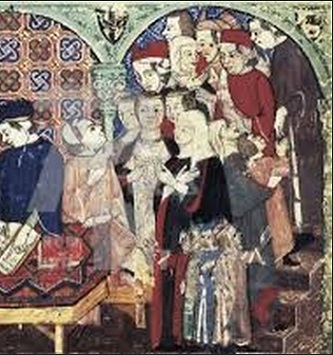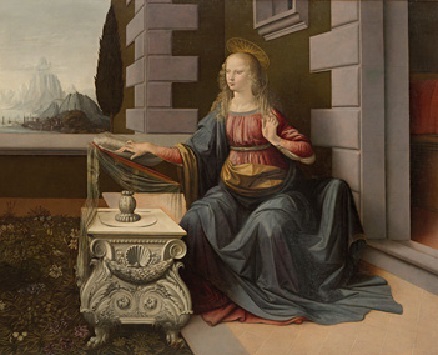
Into the Future

Introduction
According to the chronicler Thomas Walsingham, after the Peasants' Revolt, Richard II told the rebels:
Villeins you were and villeins you will stay – not as before, but worse. Your slavery will be an example to others.
Richard probably never said this (Walsingham was copying a story in the Bible) but – even if he did – the saying turned out to be wrong. Most lords realised that the revolt was (in the words of a poem of the time) 'a warning to beware'. Lords began to set their villeins free. A century later, there were no villeins in England.
During the fifteenth century, other events were changing England, completely and for ever.
Warfare was changed by the use of gunpowder. As no castle was strong enough to withstand a cannon bombardment, no nobleman was strong enough to ignore the king.
At the same time, the nobles of England became involved in the Wars of the Roses. Unlike other wars in the Middle Ages, the Wars of the Roses had little effect on ordinary people, but they bankrupted and ruined the nobles.
Meanwhile, a new middle class of merchants and traders was becoming powerful. Trade grew in the fifteenth century. Improvements in ships and navigation allowed sailors to go further, faster. English wool was in demand all over the known world. Eventually, an Italian explorer called Columbus crossed the Atlantic Ocean and reached America. You may have heard the rhyme:
In fourteen hundred and ninety-two,
Columbus sailed the ocean blue,
but did you know that some historians think that sailors from Bristol in England discovered America before Columbus – but decided to keep their profitable discovery a secret!
Also during the fifteenth century there were advances in painting. Artists learned how to draw in perspective, so their pictures seemed more lifelike.
Man's knowledge of science improved. An astronomer called Galileo said that the sun did NOT go round the earth (as the Roman Catholic Church taught). He realised that the earth went round the sun.
Other people began to undermine the power of the Church. Scholars who studied the Greek language discovered mistakes in the Latin version of the Bible used by the Roman Catholic Church.
Meanwhile, the invention of the printing press allowed printers to produce books much more quickly and cheaply than the monks had ever been able to do, copying them out by hand. Books are dangerous things! The new ideas spread across Europe like a new plague; infecting people's minds, and killing off old ideas and institutions.
It was a time of Renaissance (meaning 'rebirth') – a time when civilisation moved forward quickly.
Have you ever wondered why the Middle Ages are called the 'Middle Ages'? The people of the Renaissance were very pleased with themselves. They admitted that the Roman Empire was brilliant. But they believed that they were brilliant too! So they said that everything in between was second-rate. A Renaissance historian, Flavio Biondo, decided to call those years 'the Middle Ages' – the low point in between the Roman Empire and the Renaissance.
Study this webpage, then answer the question sheet by clicking on the 'Time to Work' icon at the top of the page.
1 A picture painted in the Middle Ages
A 14th century miniature of Jewish moneylenders:

2 A painting in the Renaissance
This painting by Leonardo da Vince is of the Annunication (1526):
